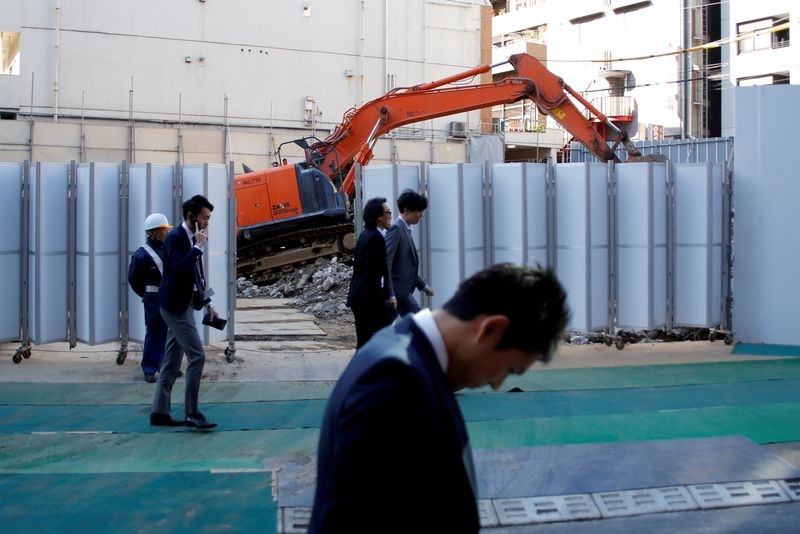By Kantaro Komiya
TOKYO (Reuters) -Japan's core machinery orders unexpectedly rose in April, at the fastest pace in 18 months, as business spending remained defiantly robust against higher energy prices and China's COVID-19 lockdowns.
The surge in the closely watched barometer of business investment bodes well for Japan's corporate sector and the broader economy, which faces global inflation and a rapid yen decline to 24-year-lows.
Core machinery orders, a highly volatile data series considered an early indicator of capital expenditure, grew 10.8% in April from the previous month, marking the biggest monthly growth since October 2020, the Cabinet Office data showed on Wednesday.
It was far stronger than economists' median forecast for a 1.5% dip and followed a 7.1% jump in March.
"It was a strong figure despite concerns about global supply chains such as the Ukraine war and China's lockdown, as well as inflationary pressures on profits," said Takeshi Minami, chief economist at Norinchukin Research Institute.
Machinery orders from manufacturers rose 10.3%, led by electronic machinery, information technology and auto sectors, according to the data.
"Sectors related to the semiconductor-making equipment carried on active investments, while carmakers turned more positive" in April, a government official told a press briefing.
Kazuma Kishikawa, economist at Daiwa Institute of Research, said key industries, such as auto and other transport equipment makers, had likely resumed investments postponed from January-February on signs China's COVID-19 infections were peaking.
Orders from service firms advanced 8.9%, driven by strong demand from transportation and financial companies.
External orders jumped 52.1% in April, posting the biggest growth since February 2021.
Compared with a year earlier, core orders, which exclude volatile numbers from shipping and electric power utilities, gained 19.0% in April, the data showed.
The government upgraded its assessment of machinery orders for the first time since December, saying they appeared to be picking up.
RESILIENT BUSINESS SPENDING
"While firms' investment plans are strong and don't point to a near-term stall, there remain risks from inflation and the subsequent overkill by global central banks seeking policy normalisation," said Norinchukin's Minami.
More optimistically, Shintaro Inagaki, senior market economist at Mizuho Securities, said orders would be on an upward trend throughout the fiscal year 2022 given manufacturers' willingness to invest ahead of post-pandemic rebound.
Japanese manufacturers' confidence improved in June thanks to resilient demand, the Reuters Tankan showed on Wednesday.

The world's third-largest economy contracted an annualised 0.5% in January-March quarter as coronavirus curbs kept private consumption stagnant.
In April-June, "exports and output might not be very good, but business investment would likely finish strong...since firms probably saw China's lockdown as a one-off event and continued to spend," said Daiwa's Kishikawa.